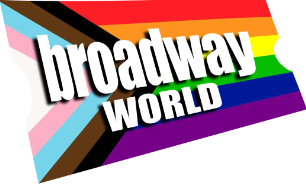Interview: Lianne Marie Dobbs of WHY CAN'T A WOMAN...? at 54 Below November 16th
"I think I'm pretty good at carrying a torch, but sometimes I need to be better with Grace. I'm working on it."
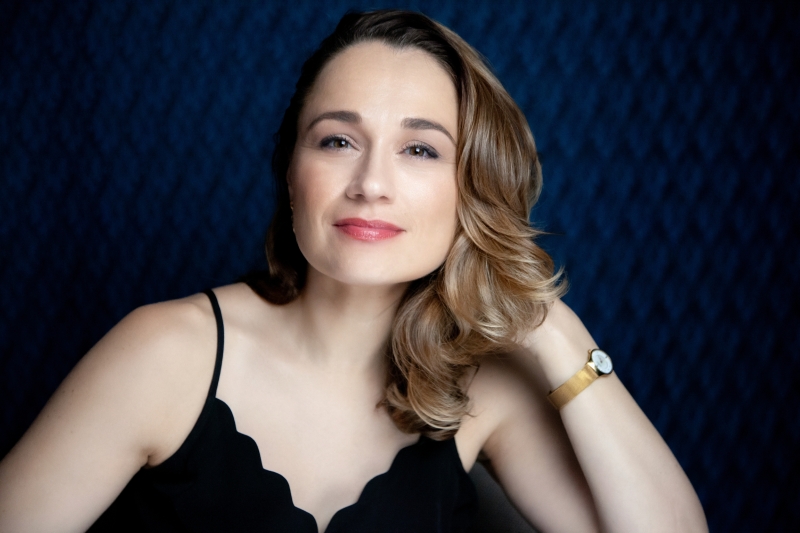 Mere months before the lockdown and show business shutdown of 2020, Lianne Marie Dobbs premiered one of the most interesting, fascinating, and thought-provoking shows of the season. At the time, the production was titled WHY CAN'T A WOMAN BE MORE LIKE A MAN? and Broadway World put out a rave review (read it HERE). Now, after two pre-pandemic performances, the newly titled Why CAN'T a Woman...? finally returns to the stage, with some tweaks, some re-thinking, some guest artists, and a leading lady with two years of personal growth under her vintage Dior belt.
Mere months before the lockdown and show business shutdown of 2020, Lianne Marie Dobbs premiered one of the most interesting, fascinating, and thought-provoking shows of the season. At the time, the production was titled WHY CAN'T A WOMAN BE MORE LIKE A MAN? and Broadway World put out a rave review (read it HERE). Now, after two pre-pandemic performances, the newly titled Why CAN'T a Woman...? finally returns to the stage, with some tweaks, some re-thinking, some guest artists, and a leading lady with two years of personal growth under her vintage Dior belt.
As the days draw close to the re-emergence of her positive-feminist-themed, literature-informed, musical exploration with Ron Abel, Lianne Marie Dobbs has some thoughtful musings about the women who inspire her, the need for arts in senior centers, and notebooks... lots and lots of notebooks.
Make reservationst to see Lianne Marie Dobbs in Why CAN'T A Woman...? on November 16th at 7 pm on the 54 Below website HERE.
Visit the Lianne Marie Dobbs website HERE.
Photos by Stephen Mosher; Visit the Stephen Mosher website HERE.
This interview has been edited for space and content.
Lianne Marie Dobbs, welcome to Broadway World!
Thank you.
So, just before the lockdown, I got to see you do your show, Why CAN'T a Woman...?
Yes.
I thought it was marvelous.
Thank you.
And, now, here we are.
Yes.
Two years later, and you're getting ready to bring it back... Girl, where you been?
(Laughing) I KNOW!
This was your debut performance, way back when, right? You did one at the Beach Cafe.
Yes.
And one at The Green Room 42. And now you're off to 54 Below.
Yes.
Two years later... so, where you been?
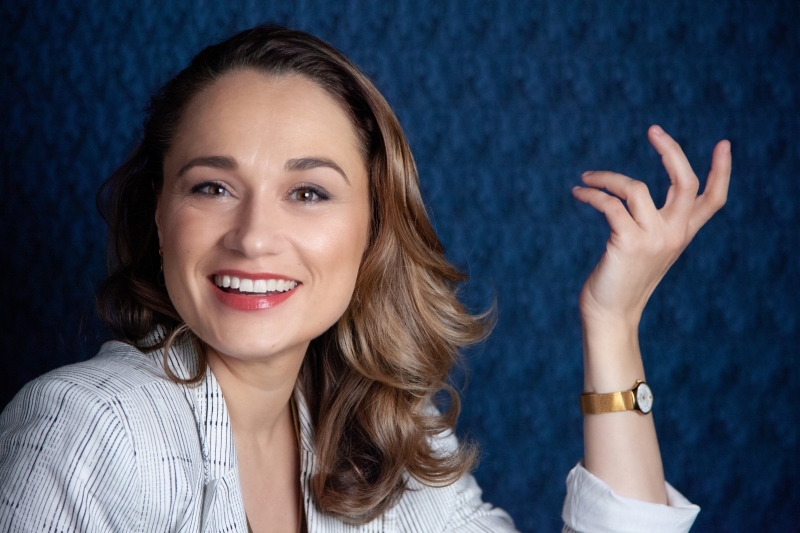 I have been in my fifth-floor walk-up in New York this whole time. I never left. The first year, I knew how much I missed gathering and sharing music, not just my own, but I love supporting this wonderful cabaret music community we have in New York. I love it. I realized, though, that if I was missing the ache of community and music (as somebody who still has the ability to make it on their own, in their apartment, when they want to) how much more people that were in true isolation really needed it? So, for the bulk of 2020, my partner, Luke Darnell, and I collaborated with Sing For Your Seniors (and, then, on our own) to bring - I think, by the end of the year, we brought over 60 volunteer concerts into assisted living facilities, caregiving centers, individual caregivers; we figured out how to connect with us so that we could do personalized concerts that we called Songs and Stories with Lianne and Luke. We wanted it to feel like they were in our living room. We have a wall of instruments, we would have a theme, and chat with each other and take questions and requests, and Sing For Your Seniors did a fundraiser to get tablets for some places where the residents didn't have their own computers. They could bring them in, they could log on so that we could be right there in their very isolated room with them. So that was 2020.
I have been in my fifth-floor walk-up in New York this whole time. I never left. The first year, I knew how much I missed gathering and sharing music, not just my own, but I love supporting this wonderful cabaret music community we have in New York. I love it. I realized, though, that if I was missing the ache of community and music (as somebody who still has the ability to make it on their own, in their apartment, when they want to) how much more people that were in true isolation really needed it? So, for the bulk of 2020, my partner, Luke Darnell, and I collaborated with Sing For Your Seniors (and, then, on our own) to bring - I think, by the end of the year, we brought over 60 volunteer concerts into assisted living facilities, caregiving centers, individual caregivers; we figured out how to connect with us so that we could do personalized concerts that we called Songs and Stories with Lianne and Luke. We wanted it to feel like they were in our living room. We have a wall of instruments, we would have a theme, and chat with each other and take questions and requests, and Sing For Your Seniors did a fundraiser to get tablets for some places where the residents didn't have their own computers. They could bring them in, they could log on so that we could be right there in their very isolated room with them. So that was 2020.
Where did that come from, that instinct?
I learned so much from my elders, and I'm not just saying that. Sometimes we discount what is going on in their mind and their heart and their soul when their physical capabilities are limited. And, now, on top of their physical capabilities being limited, they were in the most danger of getting ill in 2020. So what was beautiful about that is I realized a lot of these people in isolation - they're a lot younger than we think, and the music that speaks to them was Peter, Paul and Mary, and Johnny Cash and Patsy Cline. So we went down this wonderful rabbit hole (or at least I did) of really acquiring and taking on the wonderful musicianship of Linda Ronstadt, of Helen Reddy, and noticing that people were singing along with that music because that was some of their favorite years. I've also witnessed (a lot) that music can ignite the ability to have a verbal exchange, where one wasn't ready, prior to the sharing of a song. I don't know what that is - call it neurology that I don't understand, or maybe it's a human exchange that allows them to say something, not just to me, but to their daughter or to their caregiver. The ability to express is open sometimes through a song.
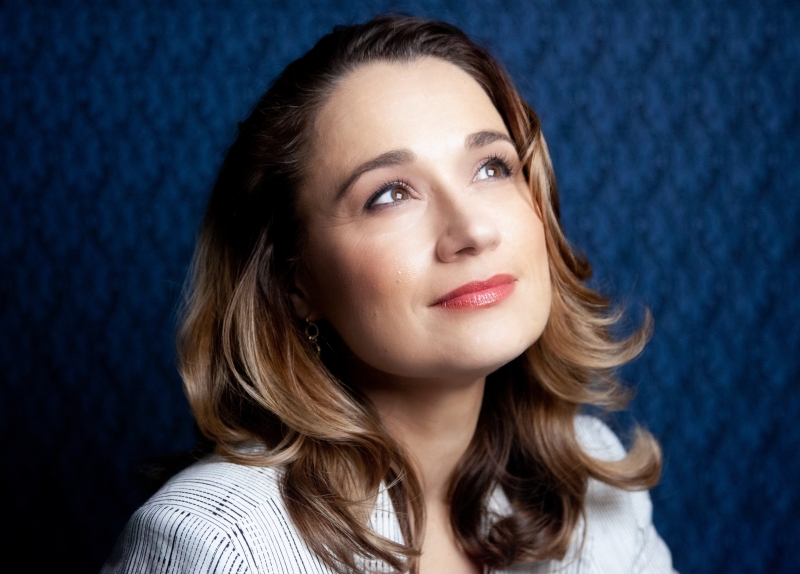
Music is one of the most powerful tools that we have...
Mm-hmm.
...in just our daily life; you know, I'm at an age where, I used to listen to the radio in the car while driving. And if a song came on that I listened to in the seventh grade, I could still smell the air of Fresno, California.
It's a time machine that immediately drops you into a memory. And it's healing. I'd be lying if I didn't say that was a huge gift to me, as well as for them. It's nice to have those memories and bring that with me, as I go back into the nightclub experience. I think I've always felt that cabaret can be a living room exchange, in the way that large commercial theater just can't be. But I've really done concerts in my living room now (laughing heartily)!! So, I am the better for it. I know you've probably heard a lot of performers complaining about it but I think I am better for it.
Will it inform your work moving forward as a cabaret actor?
Absolutely. I think it brought home the idea that, while I, as an actress, love creating a full scenario, I know I do drop into a story when I perform - I don't tell you about this story, but I commit to dropping into it. But the year and a half/two years of bringing music from my living room to people that needed it, what that has done is reminded me that their reception of it goes beyond whatever imaginary story I made up. I'm not going to stop doing that. But if I see somebody having some experience in their eyes, if it's available for me to see, maybe they're gonna let me into that... and maybe I can drop my idea. And now there's gonna be somebody six feet away that, yes, they have a martini in front of them, but they still are having a memory - that memory, the taste, the smell of somewhere. And I might just be there for that when I sing.
When an actor makes their backstory before they walk on the stage...
Mm-hmm.
The only thing that the audience sees is what's happening on the stage.
YES!
They don't know the backstory.
Correct! Correct.
What matters is what's happening inside of them, based on what they're seeing.
Correct!
And you are the catalyst.
Yes. And while I, cognitively, knew that, I think I experienced that being a catalyst in a whole new way.
I mean, how many times have you been in a club as an audience member and somebody sings "Moonglow" and the entire room goes, (Sigh) "Ahhhhhhhh..."
(Laughing) Right! First two notes, three notes!
.jpg)
You are a vintage woman whose music predates this Sixties and Seventies music that you were singing for the seniors.
Yes. (Laughing big) I know. isn't that funny?
Describe that eye-opening experience of learning this new genre of storytelling? Because the seventies was big for story songs.
Yes.
Like "Angie Baby" and...
Or from the movies! A senior at one of the residents requested that I sing "The Way We Were," which I thought was so interesting... and what a story... these are great story songs that I will never stop singing. Burt Bacharach and Hal David... Oh my goodness, I will never forget singing "Alfie" at a residence, in person (masked but in person), finally, when that was back, and this woman started to sob uncontrollably. One of the caregivers came over to check on her and see if she was okay, and the caregiver hugged her and they started to laugh. And I thought, "What is happening?" Her favorite dog's name was Alfie and she had Alfie for seventeen years. She came up to us afterwards and said, "I know I was crying but I had never felt him so actively on my lap again and it startled me. Thank you for bringing my dog Alfie back to me." I now have a (deeper) love for Burt Bacharach and Hal David.
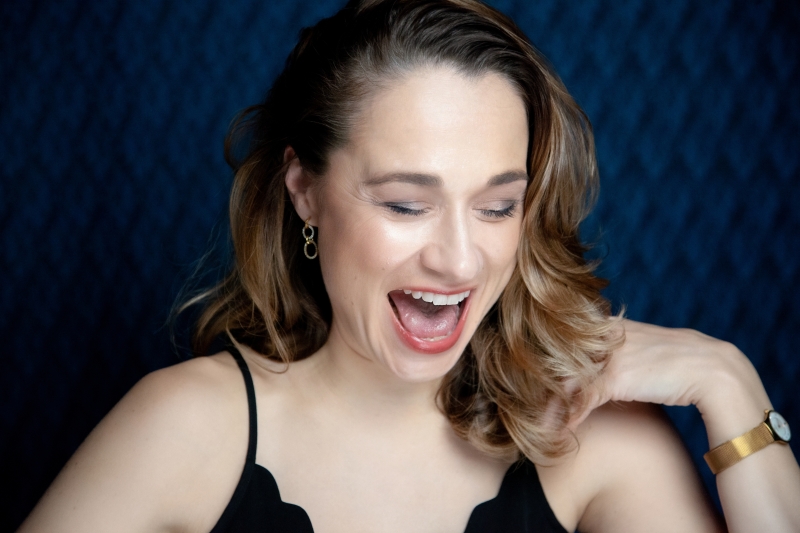
No cabaret performer sticks with the same show forever.
Right.
You have a lot of stories in Why Can't A Woman...?
Yes.
I'm very interested to hear about the genesis of this particular piece of theater because it is theater.
Thank you!
Tell me about the creation of this show.
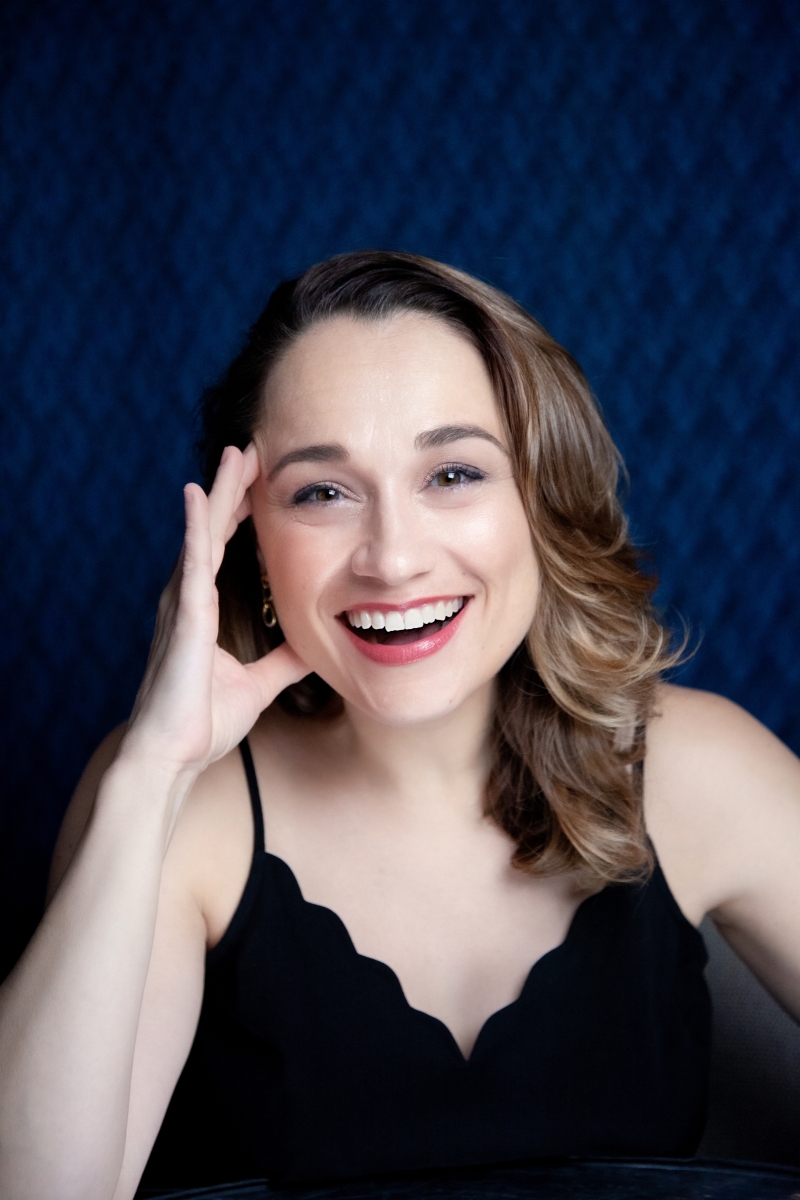
I love that. So, I think the very first song that came to mind that I wanted to work on that was of this theme... Ron Abel, who said the most generous thing you can have said to you from Musical Director to singer, "I want to work with you." He said that, and he meant it with his heart and soul, and I am blessed. I wanted to work on "I've Grown Accustomed To her Face." The only female I had heard sing it at that point was Peggy Lee. I heard the song as a mother not quite being able to be okay with her 18-year-old daughter not being in the house because she's so used to her highs, her lows. "Good morning!" she said, every day. I couldn't believe that I'd never really heard it owned that way. That idea of I don't know how to say it, I'm just so accustomed to her sighs, her giggles, the things, the movements. And I wanted to look at what is it, musically, if I want to communicate that without a lecture, if I want to bring you into this story - not just the emotional story, but a little bit of the visual story. How do I do that? So we looked at that song, and we started looking at some others. The next one I think that we looked at was, "Something's Coming." What if it's not about a young man that just believes he's gonna get laid that night? (Laughing) Let's make it a little bit deeper! That idea of something, it's gotta be soon. It will. It could. It will but it's just out of reach. That's absolutely a woman wanting a lot of different things, just out of her reach.
We looked at those songs, musically, and I was trying to figure out how to introduce this idea of her perspective. It had to be more than just keeping the lyrics as written for the leading men. And I was thinking: quotes. I have all these biographies of wonderful female actresses who went through very hard times to get to where they were. I realized I needed to share the San Francisco feminist in me who loved used bookstores. I realized that I have a bookcase filled with books in my apartment and I was trying to figure out how to introduce my perspective without it being a lecture, or what I call a docu-concert. I don't want to profess to be an expert on something, but how do I get you in my mind? I saw these books and I went, "There they are. There they are. There's Michelle Obama. She can help me. Erma Bombeck can help me. Charlotte Bronte can help me." So it came from the idea of taking these books off my shelf that I have read many times, and finding words of wisdom from them that set the scene for each song.
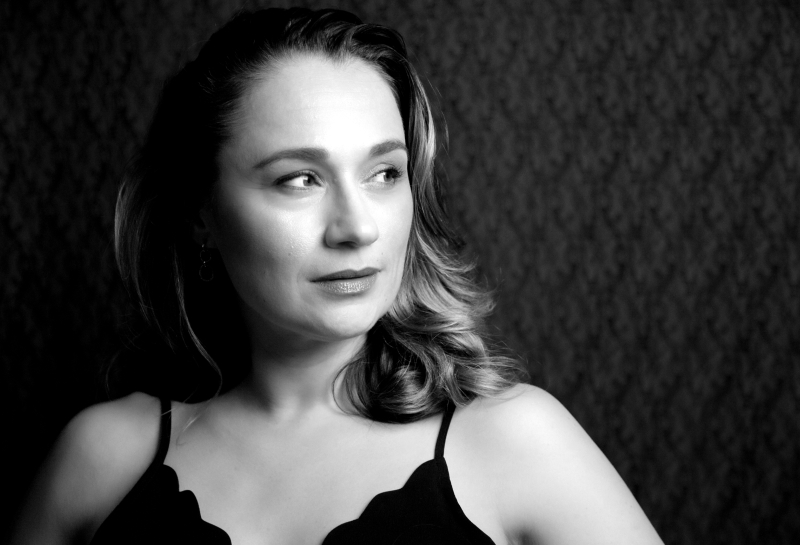
But that came after the music. I knew the scene for each song, then I found their words. But I think their words were already in me - I know they were. I love used bookstores. I miss used bookstores - the smell... I would sit on the floor and do homework on the floor of a used bookstore. I don't know what that was, but I loved it.
You can't get the smell of the pages from the Kindle.
No, you can't.
You can't get the crackle of the spine from a tablet.
No. So those are the first two songs, and then many more came. There are some that are not vintage, there are a few sassy ones.
There are a lot of rooms to enter when going through this show with you.
Mm-hmm.
There's the room of every person in the audience who relates to your love of books.
Yeah.
There's the room of everyone in the audience that appreciates and respects women.
Mm-hmm.
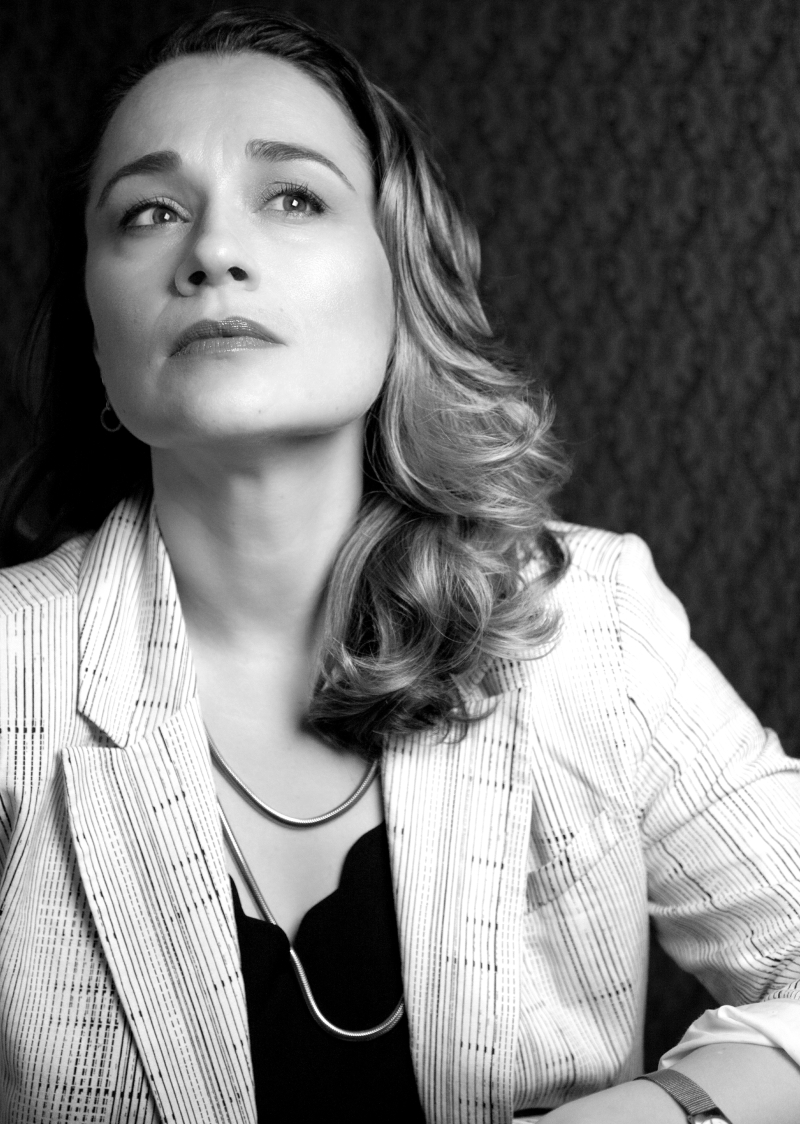 When you sat down to write the show, even though the songs were already there and the script followed... How do you do that? Do you storyboard it? Do you outline it? How does it all come together?
When you sat down to write the show, even though the songs were already there and the script followed... How do you do that? Do you storyboard it? Do you outline it? How does it all come together?
Mmmmmm. I am very bad with paper.
Unless you're reading it.
Yes. When I take notes they're very messy and haphazard. I don't like thinking in a linear way. I never did. I just confessed to somebody that when I took notes of a lecture, I would actually change the orientation of my notebook, just to see if the visual of my note taking would increase the challenge of memorizing it. I like tricking my brain. That's all to say that there are these little notes and then I have to create a linear pattern because that's how you make a strong decision, by seeing if it works linear in a linear form - that's how most people absorb stories, information. But it starts out in these messy, bright colored notes, multiple notebooks: the idea notebook, the task notebook, and sometimes the task notebook becomes the idea notebook. (Laughing) And that's not a very productive answer. (Laughing)
Productive carries no weight when it comes to artistic creation because every artist creates in a different way.
Absolutely.
And your way may be different from everyone else's way, but look what it has created.
Thank you.
Do you write in the margins in your books?
I used to. I try not to anymore but I used to. Some of the books that are quite worn, there are notes in the margins. I try to take better care of them and make notes in an outside notebook, now. I say it's not productive because if I were to do a masterclass on how to put a show together, I would not recommend my scattered way. But I have to say, whether it's ideal or not, that is how I have done it. And maybe it's because of the many things I do, as an artist, these cabaret ideas pop in. So whatever notebook I have, that's where the note is, and then eventually they have to all come together in the same one.
Perhaps being in a masterclass with you, somebody would hear about your process and find there is validation for their own process.
I think sometimes we have to forgive ourselves for our process not being one we've read about before.
It has to be different.
Yeah.
If it's going to be original.
Yeah.
You've done the show twice.
Yes.
Over the last two years, have you found that your viewpoint on the world and on life has changed anything necessitating revisitation to your script?
Absolutely. There is one song in particular that I'm going to introduce differently. I think it's important to acknowledge our inner child. I had a friend point out that he didn't hear about little Lianne, who also loved books. On top of my mentioning the fact of how severely isolated seniors were in the past two years... children - I can't fathom not having social connection for as long as many children went without social connection with their peers. But I know how happy I was when I went to bed with a good book. Thrilled. I was a very talkative, social little girl. But it wasn't punishment when I had to "Go to your room, read a book. I just need you to be quiet and be still for a while." That was heaven. I just realized I needed to really think about a children's book that really did inspire me - that was fun to look at. I also think that I am aware of the sensitivity that I am not trying to define what a woman is for everybody. I am hoping that perhaps I am highlighting and identifying for other people what a woman is to them - not just me. I'm not claiming to be the expert on everybody's perspective of what a woman goes through. I think I'm still discovering what that extra sensitivity will bring to the text. I hope it'll just bring a human connection and an awareness. There's a wonderful quote that I just found that Ruth Bader Ginsburg said (and I'm gonna get it wrong, I'm sure) about gender lines. "The problem with gender lines is that they keep a woman in a cage." Not that they define, but that there's a cage. I am very glad that there is discussion on the different ways people have felt caged by gender lines. I'm here for that. It's not just about me, it's also about other women in my life too.
Who are the women that have most inspired you?
Ooh, the show is full of them. I'm hesitant to say names right now cause there's so many names on the shelf.
Lately what's happening is there are women in the show that are champions of doing something first. I love it when there's a big hooray or applause, as soon as I hold up a book that is a known champion in this country. I love that. I think what's been happening is seeing the way people whose names you and I don't know... seeing the way that they are championing gender challenges has affected me a lot. Perhaps that is the last two years of watching the small ways that women navigate their space, their lack of equity, the judgment over how they're aging, the judgment of how what parts of their body are exposed. I have to say that's on my mind as I'm performing the songs - the things I've been inspired by in small ways and people beautifully and positively conquering those challenges. That's why I like saying it's positive feminism, and I've had some people not quite agree with that term. But I say that because a lot can be done when you conquer with grace.
Those are the women that are in my mind when I'm doing a lot of the singing of these songs - the humans that have conquered these challenges with grace. That's who I want to be more like. I think I'm pretty good at carrying a torch, but sometimes I need to be better with Grace. I'm working on it.
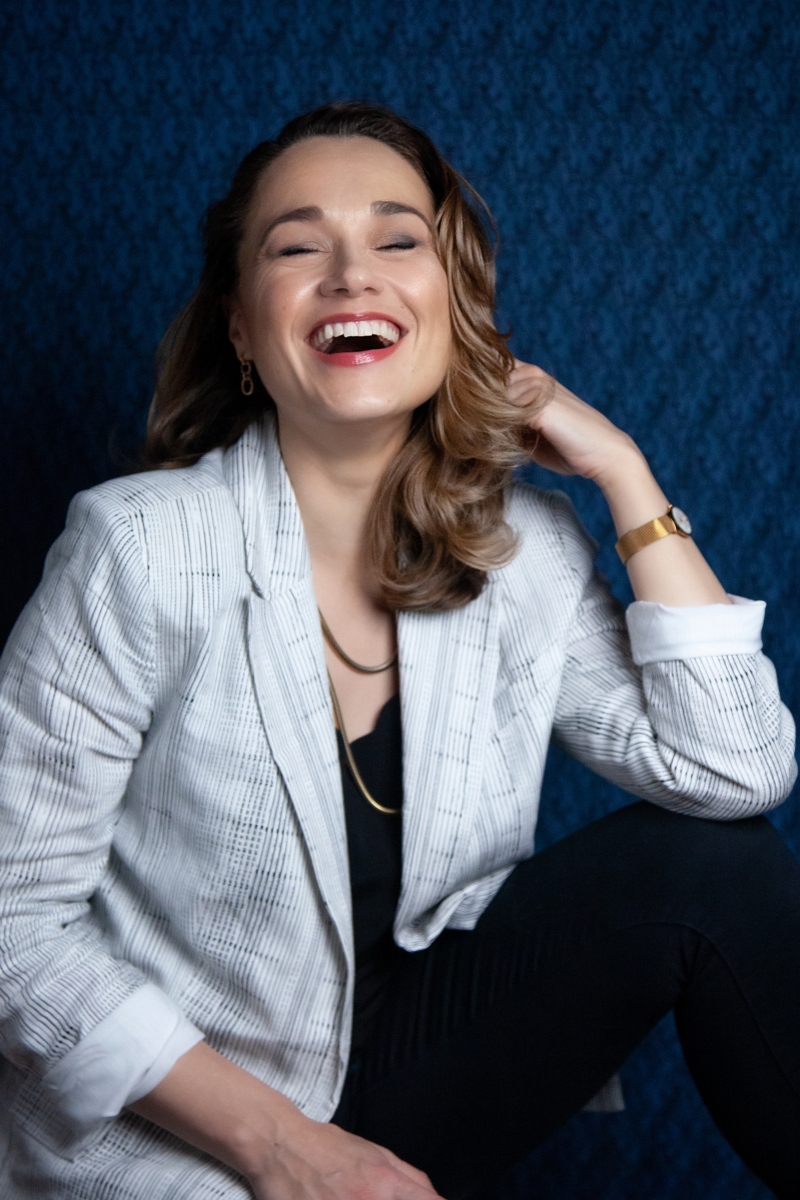
You've been doing a lot of television.
It's been a wonderful year for that for me. That's been very interesting to have that facet of storytelling be so ready for me all at once. It's been interesting. Is it me? Is it them? Is it the wonderful team I have behind me? I don't know.
Don't question it, just keep doing it.
Yes.
Don't ask for the ingredients, just enjoy the cake.
Yes. Thank you.
I'm glad we got to sit down and talk because I love your show. It's a wonderful piece of theater. It's very theatrical.
Thank you.
It's socio-political, it's intellectual, and it's musical. It's like a diamond, it's like a gem, there are a lot of facets to it and I hope that a lot of people will come to see it.
Thank you so much. I hope so too. I will say one of the quotes... Michelle Obama's book Becoming is so tremendous, and if anybody hasn't read it, you can listen to her read the audiobook, it's incredible. She ends the book by talking about the power of our own voice. It's a big thing that my show is about: the power of your voice. But this quote that never leaves me - that there is also power in being able to hear others, that that's really where the greatest extension of your own power comes from, is in truly hearing others. So, even for anybody who has not had the struggles that I am representing on that stage, I hope they hear it, enjoy it, and are inspired by that. I really mean that. That didn't come from me, it came from the great Michelle Obama.
Thanks for chatting with me today, Lianne. I had fun.
Thank you Stephen. Thank you.
Comments
Videos
